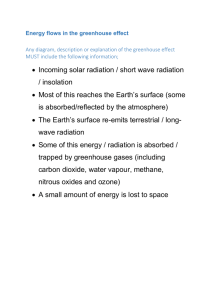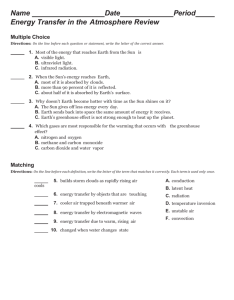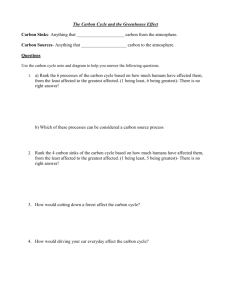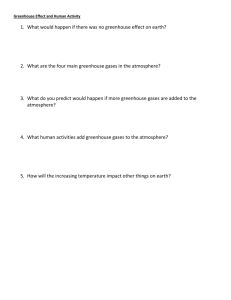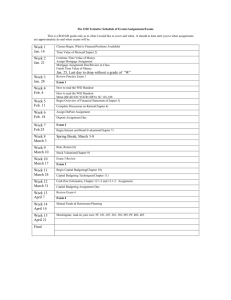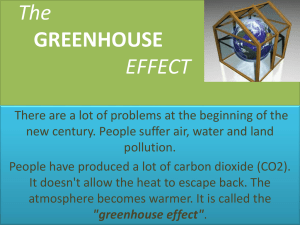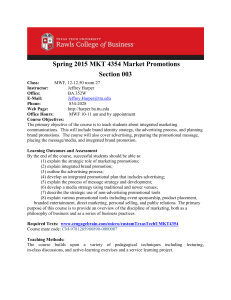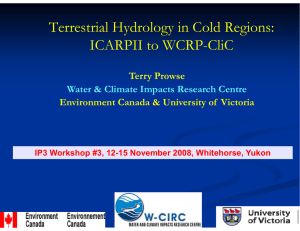DOCX - Atmospheric Sciences
advertisement
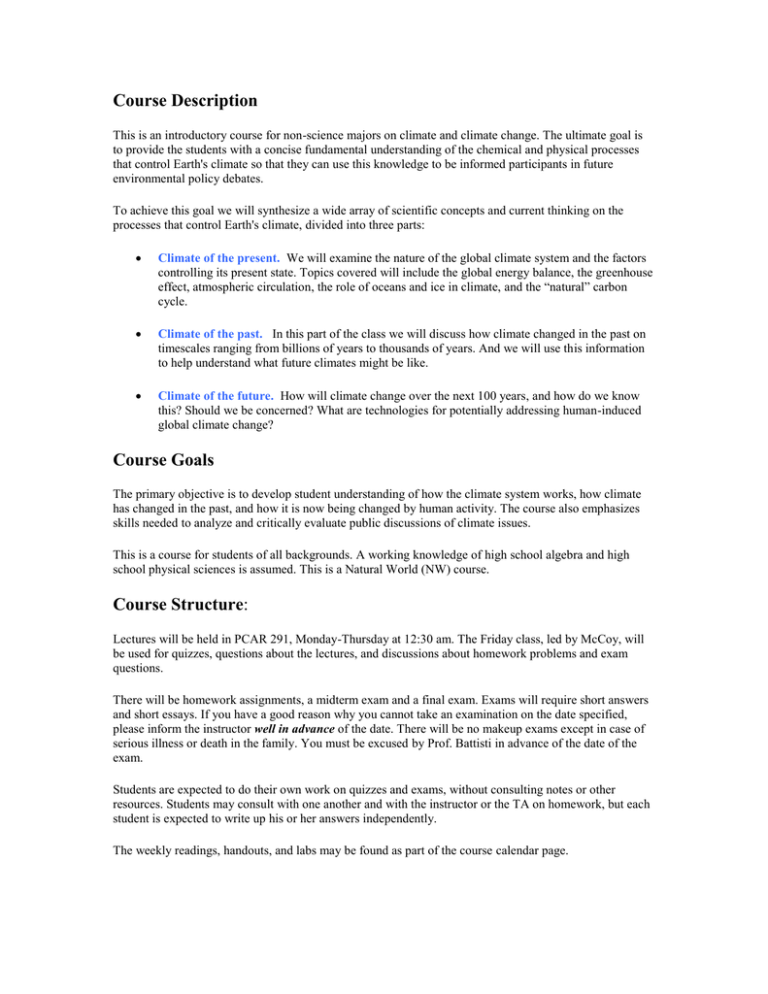
Course Description This is an introductory course for non-science majors on climate and climate change. The ultimate goal is to provide the students with a concise fundamental understanding of the chemical and physical processes that control Earth's climate so that they can use this knowledge to be informed participants in future environmental policy debates. To achieve this goal we will synthesize a wide array of scientific concepts and current thinking on the processes that control Earth's climate, divided into three parts: Climate of the present. We will examine the nature of the global climate system and the factors controlling its present state. Topics covered will include the global energy balance, the greenhouse effect, atmospheric circulation, the role of oceans and ice in climate, and the “natural” carbon cycle. Climate of the past. In this part of the class we will discuss how climate changed in the past on timescales ranging from billions of years to thousands of years. And we will use this information to help understand what future climates might be like. Climate of the future. How will climate change over the next 100 years, and how do we know this? Should we be concerned? What are technologies for potentially addressing human-induced global climate change? Course Goals The primary objective is to develop student understanding of how the climate system works, how climate has changed in the past, and how it is now being changed by human activity. The course also emphasizes skills needed to analyze and critically evaluate public discussions of climate issues. This is a course for students of all backgrounds. A working knowledge of high school algebra and high school physical sciences is assumed. This is a Natural World (NW) course. Course Structure: Lectures will be held in PCAR 291, Monday-Thursday at 12:30 am. The Friday class, led by McCoy, will be used for quizzes, questions about the lectures, and discussions about homework problems and exam questions. There will be homework assignments, a midterm exam and a final exam. Exams will require short answers and short essays. If you have a good reason why you cannot take an examination on the date specified, please inform the instructor well in advance of the date. There will be no makeup exams except in case of serious illness or death in the family. You must be excused by Prof. Battisti in advance of the date of the exam. Students are expected to do their own work on quizzes and exams, without consulting notes or other resources. Students may consult with one another and with the instructor or the TA on homework, but each student is expected to write up his or her answers independently. The weekly readings, handouts, and labs may be found as part of the course calendar page. Course Assessment Homework and Quizzes 35% Mid-Term Exam (Thursday Feb 9) 30% Final Exam (Wednesday March 16) 35% Required Text The Earth System by Kump, L. R., J. F. Kasting, and R. G. Crane, Prentice Hall, 3rd ed., 2010. The textbook will be supplemented with handouts. Tentative Class Calendar ATMS 211 Winter 2012 Week 1 (Jan 3-5) Introduction; Origin of Earth’s Atmosphere; Atmosphere Composition Today; Week 2 (Jan 9-12) Heat and Temperature; Heat Forms and Transport; Radiation; Concepts in EM Radiation; Solar Radiation and the Earth; Albedo, Energy Balance Week 3 (Jan 17-19) Greenhouse gases and the Greenhouse Effect, Seasonal Temperature Cycles Week 4 (Jan 23-26) Cryosphere (guest lecture), Seasonal and Diurnal temperature cycles, Pressure, Hydrostatic Balance Week 5 (Jan 30-Feb 2) Coriolis effect and geostrophic wind; Jet streams; General Circulation of the Atmosphere; The Role of Mountains in Climate; The Role of the Ocean in Climate Week 6 (Feb 6-9) The Cryosphere Today; Ice Ages and how we know they happened; Milankovitch Theory; Precessional Forcing Week 7 (Feb 13-16) The Carbon Cycle and Warm Climates of the Past Week 8 (Feb 21-23) Human Induced Changes in Greenhouse Gases and their Impact on Climate (the 20th Century) Week 9 (Feb 27-Mar 1) The 20th Century Climate (cont); Projected Climate Change (today to 2100 and beyond) Week 10 (Mar 5-8) Projected Climate Change (cont)
